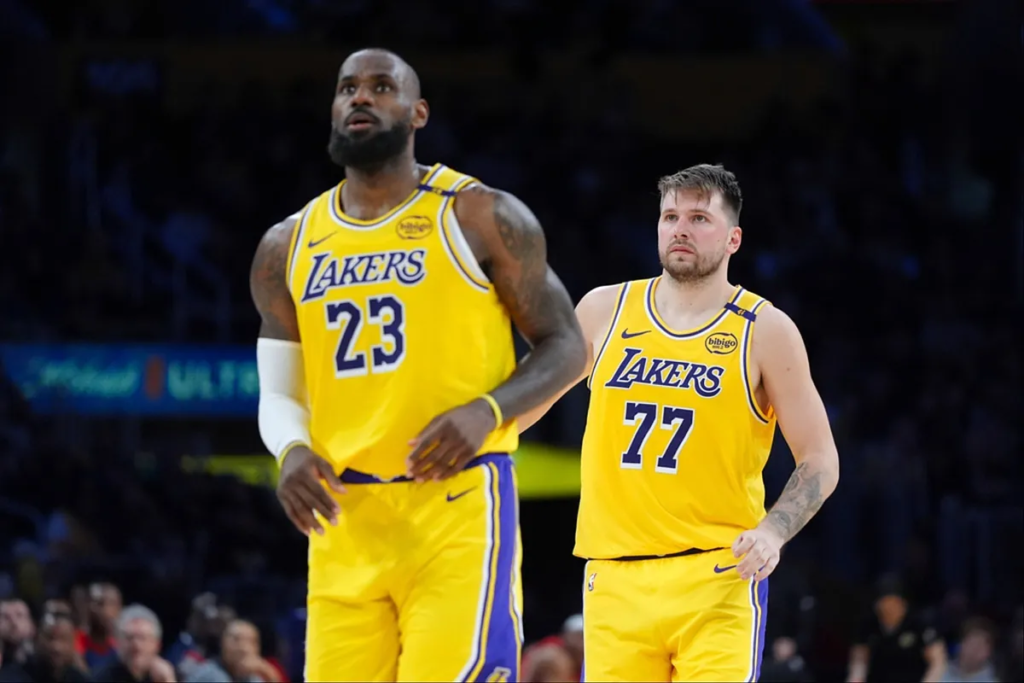As the Los Angeles Lakers gear up for another NBA season, much of the conversation surrounding the team centers on roster upgrades and how to maximize their championship potential. Traditionally, a strong, dominant center has been a cornerstone for NBA contenders.
Yet, former Lakers star Michael Cooper offers a fresh take on the matter: he believes that the Lakers do not necessarily need a conventional center to succeed.
Cooper, a key figure in the Lakers’ Showtime era and renowned for his defensive skills and adaptability, shared his perspective on the evolving nature of the game and the Lakers’ roster construction.
He emphasized the modern NBA’s shift away from rigid positional roles, noting the rise of “positionless basketball,” where players are expected to be versatile and multifaceted.
Advice from a longtime Lakers legend
According to Cooper, this style suits the Lakers’ current personnel better than relying on a traditional big man.
“The game has evolved, and you don’t need to have a classic center the way you used to. Teams are playing more versatile and fast-paced basketball now,” he said.
Cooper points out that the Lakers roster already contains players whose skill sets make the team flexible and dynamic without the need for a prototypical center. He highlights players like Jaxson Hayes, Jarred Vanderbilt, and Maxi Kleber as valuable contributors who embody this versatility.
Jaxson Hayes offers athleticism and shot-blocking ability that can be integrated into a defense focusing on team coordination rather than individual rim protection. Jarred Vanderbilt’s defensive versatility allows him to guard multiple positions effectively, while Maxi Kleber stretches the floor with his three-point shooting, creating valuable spacing for the Lakers’ offense.
“With guys like Hayes, Vanderbilt, and Kleber, the Lakers have players who can switch, guard different positions, and space the floor – all of which are crucial in today’s game,” he added.
A new direction for Lakers’ roster construction
Michael Cooper’s argument is rooted in how the NBA’s style of play has transformed. The game is no longer dominated by slow, back-to-the-basket centers. Instead, speed, shooting, and switching defenses define successful teams. This modern approach reduces the reliance on traditional big men who primarily anchor the paint.
In addition, the Lakers’ roster features emerging talents who complement this strategy. Austin Reaves has demonstrated growth as a secondary playmaker and scorer, and his skill set fits well in a fluid offensive system that prioritizes ball movement and spacing. Adding to this, the presence of Luka Doncic – an elite playmaker and scorer – means the Lakers can afford to be less dependent on a single dominant post presence.
“Reaves and Doncic offer playmaking and scoring that allow the Lakers to run a more dynamic offense, minimizing the need for a traditional center.”
This philosophy also opens the door for head coach Darvin Ham to implement schemes that capitalize on the team’s strengths: quick rotations, perimeter shooting, and versatile defense. Instead of forcing a conventional big man into a specific role, the Lakers can deploy a “small-ball” lineup or mixed rotations, allowing players to exploit mismatches and keep opponents off balance.
Michael Cooper’s insights shed light on why the Lakers‘ future success might not hinge on acquiring a traditional center. Instead, by embracing versatility, speed, and adaptability, the Lakers are well-positioned to compete in the current NBA landscape – where positionless basketball is becoming the norm rather than the exception.
Read the full article here

